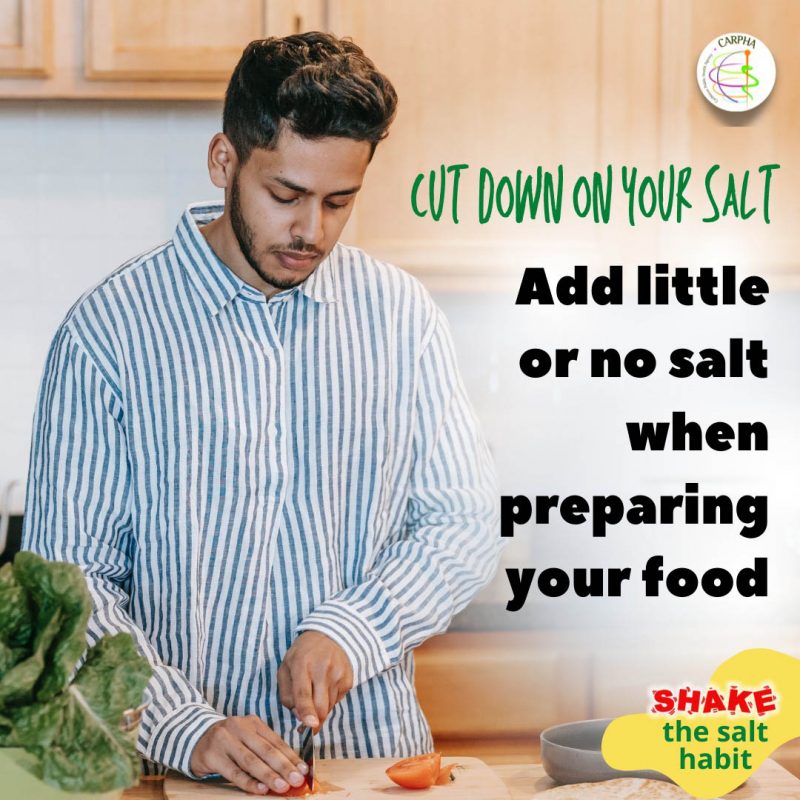“Too much salt in our diets can harm our health, leading to unnecessary deaths from heart attacks and strokes, and other non-communicable diseases,” states Dr. Joy St. John, Executive Director at the Caribbean Public Health Agency (CARPHA), in observance of World Salt Awareness Week (March 14 to March 20).
This year, World Salt Awareness Week is being observed under the slogan “Shake the Salt Habit”.
In a statement, CARPHA said the Caribbean is well known for its high dietary consumption of fats, salts and sugars predominantly obtained from processed and ultra-processed foods. “Sodium consumption in the Region has been determined to average 9-12 grams per day,” it pointed out, while adding that the amount is twice the World Health Organization recommendation of less than 5g/salt or 1 teaspoon (<2g of sodium) per adult per day, from all sources.
CARPHA said its Member States have committed to the World Health Organisation voluntary target to reduce sodium (salt) consumption by 30% by 2025. To support Member States’ initiatives to reduce sodium consumption in their populations, CARPHA developed a Regional Framework for Sodium Reduction in Populations. “Lowering sodium use in children’s diets today can help prevent heart disease later in life, especially for those who are overweight. The Regional framework intended for policymakers, manufacturers, health professionals, and relevant multisectoral stakeholders from public, private and civil society, envisions a healthy and vital Caribbean people whose average sodium intake falls below the current global target of 5g per day for adults,” it added.
According to CARPHA, the reduction of salt in processed foods, coupled with mandatory nutrition labelling are part of the dietary considerations that have to be implemented. It said governments and food manufacturers are urged to create supportive environments to enable lower salt options to be provided, implement front of package labelling to provide easy-to-read-and-understand information for consumers and reformulate food products to contain less salt.
“Let us try to shop smart and cook smart. We encourage you to add more flavour, use less or no salt when cooking. Try using fresh herbs and seasonings. Limit the consumption of salty snacks,” CARPHA quoted Dr. Tamu Davidson, Head of the Chronic Disease, and Injury Department, as saying. She added “Take the time to carefully read the nutrition labels on food products. They can help you with choosing healthy food options and keep a check on foods you are eating that are high in salt.”
